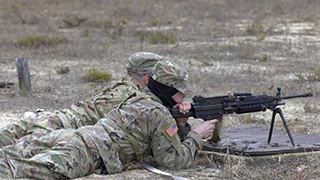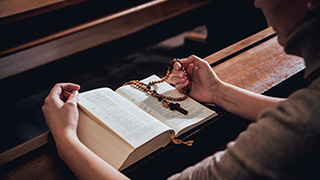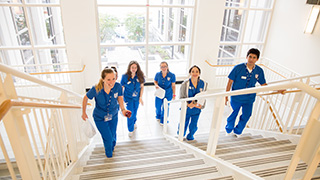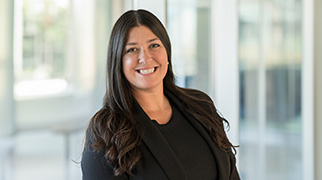President Nyre Meets with State Senate Higher Education Committee
Wednesday, May 20, 2020
President Joseph E. Nyre, Ph.D., testified before the New Jersey Senate Higher Education Committee on Tuesday, May 19, in a meeting about the coronavirus pandemic's effect on the lives and livelihoods of the people and institutions in New Jersey's higher education system.

"We established a Health Intervention and Communication Team to advance pandemic response recommendations for campus operations and safety. In early March we moved to cancel study abroad, including destinations that were not yet classified as high risk. At the time, our decision seemed severe. But we were ultimately, and unfortunately, vindicated as COVID-19 took hold," he said.
Nyre described the University's deployment of measures to protect students and employees to reduce density, transition instruction to remote settings, and safely move the vast majority of students out of residence halls, while safely providing vital services to those who remained on campus.
"These were the right decisions, even though we knew such actions could create financial hardship," he added. "Today, guided by the University's mission, available science, and evolving public health directives, we have multiple teams advancing recommendations and developing various contingency plans to ensure a healthy return to Seton Hall this fall. I believe that, the more comprehensive our planning, the greater our ability to effectively anticipate and overcome any outcome."
Nyre requested legislative assistance in the provision of rapid testing, tracing and protective equipment for each college and university in the state, adding, "Legal protections for K-12 and higher education remains a concern, so I ask you to consider safe harbor legislation to complement anticipated reopening guidance and regulations."
Nyre concluded his remarks by thanking the committee's chair, Senator Sandra Cunningham, and all the committee members, for their continued support of institutions of higher education in the state. He noted that "New Jersey is strong" and as anchor institutions, the economic impact of colleges and universities on communities and feeder businesses is an immediate economic imperative.
"Educational continuity for our students is paramount for the future of our state and our country," he shared, concluding, "Today's students are tomorrow's problem solvers: CEOs and senators, artists and athletes, bishops and business leaders, poets, professors and policy makers, researchers, and advocates. They are our solutions to the problems of today and tomorrow, underscoring the import of your work in making returning to school a top priority."
Categories: Campus Life, Health and Medicine, Nation and World





